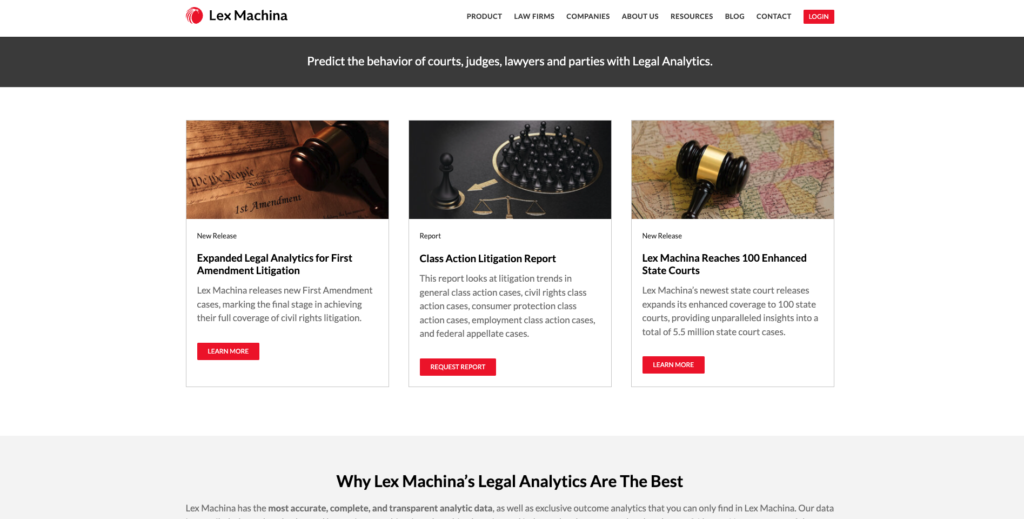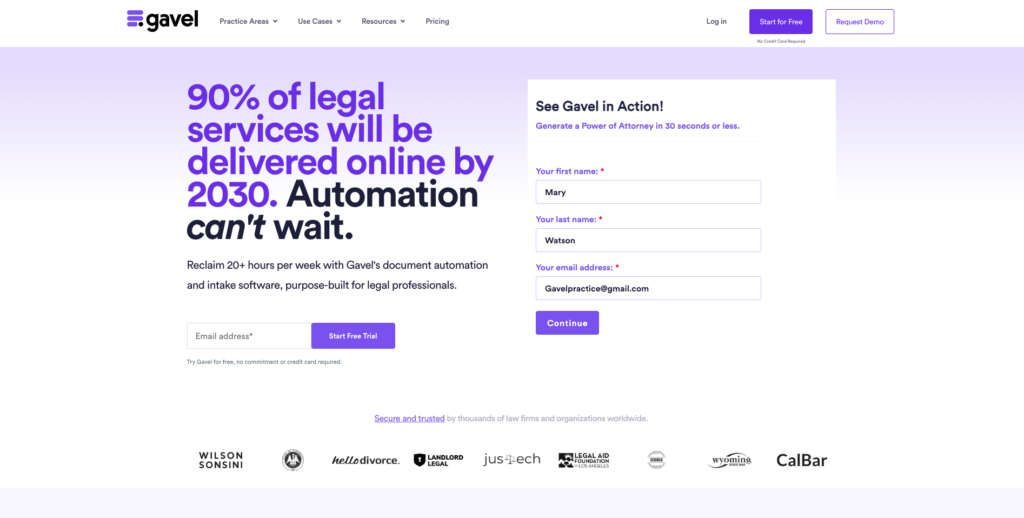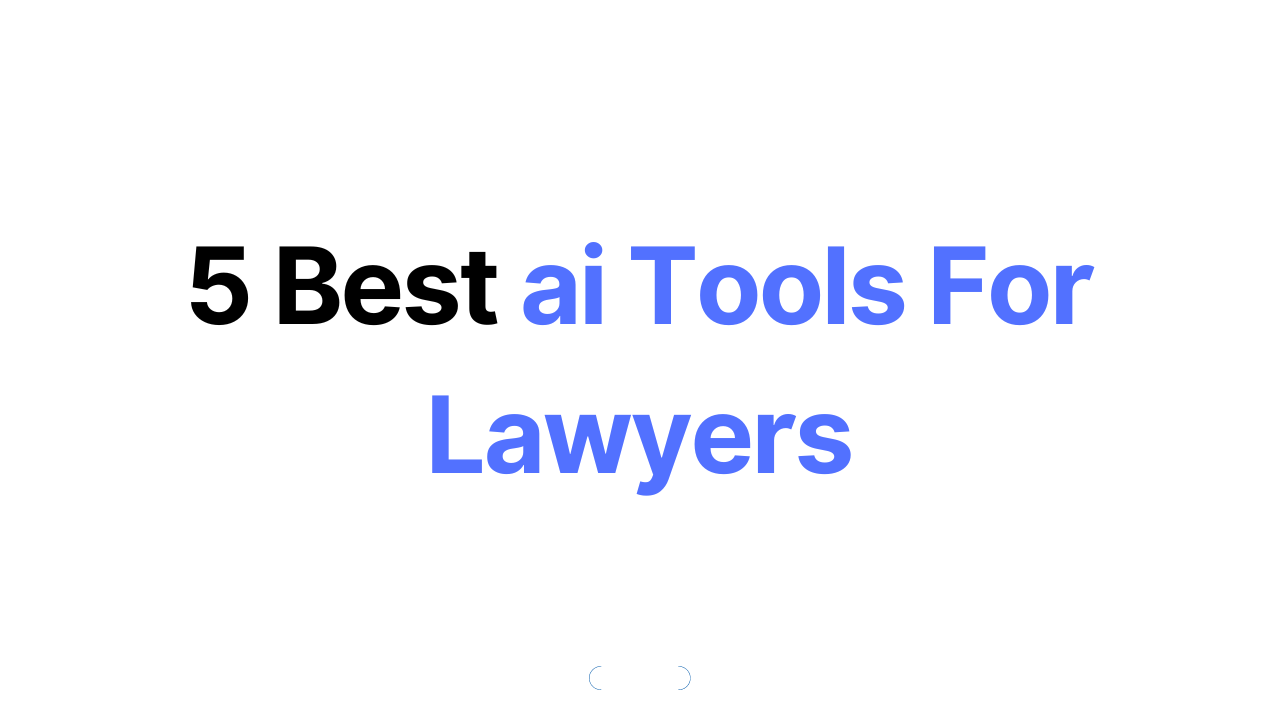Artificial Intelligence (AI) tools offer unprecedented opportunities for law firms to enhance efficiency, accuracy, and client service. With a plethora of AI tools available, choosing the right ones can be overwhelming, especially for those new to technology.
This guide highlights five of the most notable AI tools currently transforming the legal sector, detailing their features, pros, and cons to help you make an informed decision for your practice.
5 Best ai Tools For Lawyers
1. Casetext

Casetext is a legal research platform that uses AI to help lawyers find relevant case law, statutes, and regulations quickly and efficiently. It has been around since 2013, applying cutting-edge AI to the law to create solutions that enable attorneys to provide higher-quality representation to more clients, enhance efficiency and accuracy, and gain a competitive advantage.
Pros:
- Comprehensive Research: Quickly finds relevant case law and statutes.
- Efficiency: Enhances accuracy and reduces research time.
- Integration: Works with Clio for seamless legal research management.
Cons:
- Cost: Subscription fees can be high for small firms.
- Learning Curve: May require time to fully utilize all features.
2. Lex Machina

Lex Machina is a standout legal analytics platform that offers unparalleled depth and breadth of data-driven insights. By crawling extensive databases such as USPTO, EDIS, PACER, and state court records every 24 hours, it compiles the latest data on millions of cases. This allows the platform to uncover a wealth of valuable information, from case outcomes and damages to the litigation history and strategies of judges and lawyers.
With Lex Machina’s comprehensive and up-to-date data, you can gain a decisive edge in your cases. Understand how specific judges have ruled in the past, anticipate your opposing counsel’s approach, and set accurate budgets and client expectations based on historical precedents.
Pros
- Comprehensive Data Coverage: Access to extensive and up-to-date databases such as USPTO, EDIS, PACER, and state court records ensures you have the latest information on millions of cases.
- Outcome Analytics™: Provides detailed insights into case results, including damages, findings, and resolutions, helping you make informed decisions.
- Case List Analyzer™: Efficiently surfaces similar cases and builds case lists based on pleadings documents, saving time and effort in legal research.
Cons
- Custom Pricing: The need for custom pricing plans might make it difficult to gauge the cost upfront, potentially posing a barrier for smaller firms with limited budgets.
- Learning Curve: The depth and complexity of the platform may require significant time and training to master, which could be challenging for firms with limited resources.
- Data Overload: The vast amount of data available might be overwhelming for some users, necessitating effective filtering and analysis to extract relevant insights.
3. Harvey AI

Harvey AI is a versatile AI-powered legal research tool integrating natural language processing and machine learning. It’s built on OpenAI’s GPT framework and tailored for legal work using both general legal data and a law firm’s proprietary materials.
Pros:
- Advanced AI: Combines natural language processing and machine learning.
- Versatility: Assists with contract analysis, due diligence, litigation, and regulatory compliance.
- Insightful: Provides data-driven insights and recommendations.
Cons:
- Beta Limitations: As it’s still in beta, some features might be unstable.
- Complexity: May require significant training to utilize effectively.
4. Blue J L&E

Blue J L&E uses AI to transform legal research and analysis. It helps lawyers predict case outcomes and dissect complex legal issues by identifying similar decisions based on factors and outcomes rather than mere keywords.
Pros:
- Predictive Analysis: Helps predict case outcomes accurately.
- Efficiency: Facilitates faster and more accurate research.
- User-Friendly: Simplifies complex legal analysis.
Cons:
- Cost: May be expensive for smaller firms.
- Initial Setup: Requires an initial setup period to tailor to firm needs.
5. Gavel

Gavel is a document automation and workflow automation platform that helps lawyers create and manage automated workflows. It allows legal professionals to input their source materials and create controlled, automated tools for document generation.
Pros:
- Automation: Streamlines document creation and workflow processes.
- Control: Offers control over source materials and rules.
- Efficiency: Saves time by automating routine tasks.
Cons:
- Setup Time: Initial setup can be time-consuming.
- Learning Curve: Requires training to use effectively.
Conclusion
These AI tools can significantly enhance the efficiency and accuracy of legal work. By automating routine tasks, improving research capabilities, and providing predictive insights, they allow lawyers to focus more on client-centered work. While there are costs and learning curves associated with these tools, the benefits they offer make them invaluable assets to any modern law firm.
